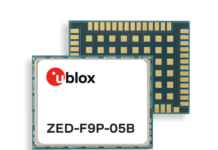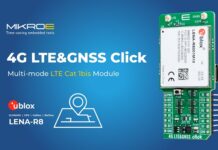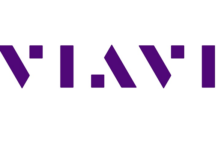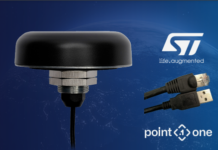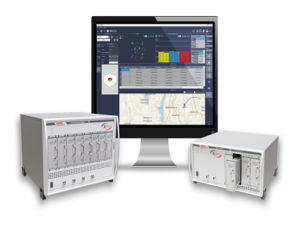
Back in November 2020, India launched a new independent regional navigation satellite system called the Indian Regional Navigation Satellite System (IRNSS)/NavIC. Leveraging satellites from the Indian Space Research Organization, IRNSS provides accurate positional information for the entire country, extending in the Indian Ocean up to approximately 1500 km from the shoreline.
IRNSS was recently approved as a component of the World-Wide Radio Navigation System, and the development of IRNSS is an exciting advancement, as global navigation satellite systems (GNSS) play an important role in assisting the navigation of ships, aircraft, automobiles, and spacecraft.
Recently, WORK Microwave, a leading European manufacturer of advanced satellite navigation and communications equipment, implemented all-IRNSS constellation signals into its Xidus GNSS simulator system, providing system and product testing to research institutes, space agencies, and receiver manufacturers in the Indian region. This article will explore real-world challenges for GNSS testing, as well as the unique benefits that Xidus brings to the Indian market.
Today’s GNSS Simulation Challenges
Today, GNSS simulators are used in various sectors, from system integration to OEM, government, aviation, and more. They are crucial to the production process, helping to ensure superior system performance. However, many simulators today lack flexibility, which is a critical feature. Users need a GNSS simulator that supports multiple constellations, as well as multiple frequency configurations with the ability to handle simulations outside of the laboratory. Having the flexibility to choose different GNSS signals to be received by multiple RX antennas, modelling different errors on GNSS signals, are a few must-have feature. In addition, a GNSS simulator needs the capacity to access simulation configuration and visualize the output on multiple systems.
Cost is another challenge. Within the GNSS market, many of the simulation devices that offer high RF performance are expensive. Finding an economical GNSS simulator with high performance and support for a wide range of requirements, including IRNSS, is difficult.
Reliability is also imperative for GNSS testing. Users need a reliable way to test new products and ensure accurate positioning in their products. For mission-critical applications such as military and government, GNSS data must be very precise.
Xidus: Simplifying GNSS Testing in India
WORK Microwave’s Xidus is a powerful GNSS simulation system that offers the flexibility, reliability, and affordability required to validate GNSS receiver testing. With the Xidus GNSS simulator, tests can be easily reproduced and repeated, and continuous signal availability is provided without any signal distortions. Xidus offers users full control over several parameters like satellite vehicle motion, signal characteristics, environmental conditions, receiver antenna patterns, and modelling multipath error. All of these tests are hard to achieve when relying on real-world signals.
Now that Xidus supports IRNSS, there are several important benefits for the Indian market. With all constellations and frequencies covered, Xidus can provide a full view of the sky, from anywhere, from any platform. The system’s unique SEE (Signal Extension and Enhancements) technology allows users to simply and easily integrate bespoke RFCS augmentations into their Xidus simulator. For example, users can specify new atmospheric distortion models, a new evil waveform, or a jammer. This innovative feature allows the simulator to provide exactly the test scenarios modern users need, without involving any OEM development costs or development delay. Thanks to this capability users can keep unique selling propositions, intellectual property and classified material safe, while getting the exact functions they need out of their GNSS simulator, without making any compromises.
The GNSS simulator assures high flexibility and scalability with multiple synchronized signal modules, while retaining signal purity at very high update rates via robust hardware. Collaborative and distributed GUI features on the Xidus simulator software help to further streamline GNSS testing.
Conclusion
GNSS simulation requirements are constantly evolving, making it imperative to have a flexible and future-proof simulator solution. WORK Microwave is a forward-thinking technology provider with a strong understanding of GNSS simulation requirements. Offering support for the IRNSS constellation, our Xidus GNSS simulator provides users with unparalleled versatility, reliability, and efficiency for navigation projects in the Indian market.



